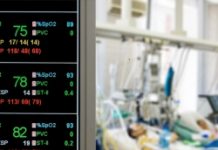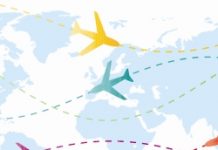 When an elderly man in Manchester spots the first signs of a heart attack it takes just a simple ‘999’ call to have an ambulance by his side within 12 minutes. It’s a service we take for granted but things aren’t so simple in Mumbai, India.
When an elderly man in Manchester spots the first signs of a heart attack it takes just a simple ‘999’ call to have an ambulance by his side within 12 minutes. It’s a service we take for granted but things aren’t so simple in Mumbai, India.
For its 20 million inhabitants they had no global number to call and no coordinated ambulance service. In fact, 90 percent of an ambulance’s revenue came from carrying dead bodies so there has been no incentive to treat the ill.
That was until a group of young graduates aimed to change everything. Dial 1298, a non-profit company, was started with the aim of providing an ambulance service to anyone, anytime through the single four digit number 1298.
For the five graduates – Shaffi Mather, Sweta Mangal, Naresh Jain, Manish Sacheti and Ravi Krishna – who devised the service they had personal experience of needing medical care in India where only 6 percent of the population have access to emergency ambulance services.
Shaffi Mather had a personal experience in which his mother choked in her sleep during the night. Unsure of how to relieve her or what number to call for help, Shaffi felt helpless. Although Shaffi’s mother survived, this experience left a lasting impression on him. A week later, Ravi Krishna’s close friend died in a road traffic accident because timely medical attention was not available. These events made them realize the acute need for organized and networked Ambulance service in India for saving lives.
Uniquely, patients using the Dial 1298 service who want to go to a private hospital pay for the service (around £20) while those going to public hospitals pay either half this or the fee is waived if they cannot afford it. It’s a business plan that covers the costs of the service and is winning esteem from social entrepreneurs around the globe.
 At present the service has 50 ambulances and has been credited with saving over 50,000 lives in Mumbai since the service first started 36 months ago. The team have worked closely with the London Ambulance Service who are one of the supporters of the programme and upon which the service is modeled – right down to the forms the paramedics complete.
At present the service has 50 ambulances and has been credited with saving over 50,000 lives in Mumbai since the service first started 36 months ago. The team have worked closely with the London Ambulance Service who are one of the supporters of the programme and upon which the service is modeled – right down to the forms the paramedics complete.
Although the budget has been tight it doesn’t mean the ambulances are lacking in the latest technology. After each Dial 1298 call the nearest free ambulance is immediately dispatched and directed via GPS. Dial 1298 ambulances were the first on the scene of the during the Mumbai bombings of November 2008.
Thanks to $1.5 million pounds funding from a US non-profit, the Acumen Fund, Dial 1298 plans to increase the number of ambulances to 70 over the coming year. They also hope this will reduce response times to eight minutes from the current 15 minutes.
Over the coming months the 1298 service is being expanded with a service being developed in Kerala and the team are bidding to provide ambulances as part of a public-private partnership in New Delhi. The service is also being used as a model for the development of emergency ambulance services across the developing world.



































